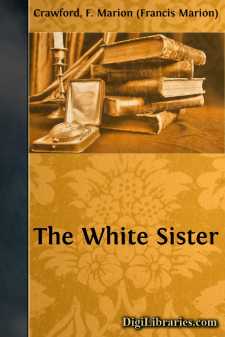Categories
- Antiques & Collectibles 13
- Architecture 36
- Art 48
- Bibles 22
- Biography & Autobiography 813
- Body, Mind & Spirit 142
- Business & Economics 28
- Children's Books 13
- Children's Fiction 10
- Computers 4
- Cooking 94
- Crafts & Hobbies 4
- Drama 346
- Education 46
- Family & Relationships 57
- Fiction 11828
- Games 19
- Gardening 17
- Health & Fitness 34
- History 1377
- House & Home 1
- Humor 147
- Juvenile Fiction 1873
- Juvenile Nonfiction 202
- Language Arts & Disciplines 88
- Law 16
- Literary Collections 686
- Literary Criticism 179
- Mathematics 13
- Medical 41
- Music 40
- Nature 179
- Non-Classifiable 1768
- Performing Arts 7
- Periodicals 1453
- Philosophy 64
- Photography 2
- Poetry 896
- Political Science 203
- Psychology 42
- Reference 154
- Religion 513
- Science 126
- Self-Help 84
- Social Science 81
- Sports & Recreation 34
- Study Aids 3
- Technology & Engineering 59
- Transportation 23
- Travel 463
- True Crime 29
In the Palace of the King A Love Story of Old Madrid
Description:
Excerpt
CHAPTER I
Two young girls sat in a high though very narrow room of the old Moorish palace to which King Philip the Second had brought his court when he finally made Madrid his capital. It was in the month of November, in the afternoon, and the light was cold and grey, for the two tall windows looked due north, and a fine rain had been falling all the morning. The stones in the court were drying now, in patches, but the sky was like a smooth vault of cast lead, closing over the city that lay to the northward, dark, wet and still, as if its life had shrunk down under ground, away from the bitter air and the penetrating damp.
The room was scantily furnished, but the few objects it contained, the carved table, the high-backed chairs and the chiselled bronze brazier, bore the stamp of the time when art had not long been born again. On the walls there were broad tapestries of bold design, showing green forests populated by all sorts of animals in stiff attitudes, staring at one another in perpetual surprise. Below the tapestry a carved walnut wainscoting went round the room, and the door was panelled and flanked by fluted doorposts of the same dark wood, on which rested corbels fashioned into curling acanthus leaves, to hold up the cornice, which itself made a high shelf over the door. Three painted Italian vases, filled with last summer's rose leaves and carefully sealed lest the faint perfume should be lost, stood symmetrically on this projection, their contents slowly ripening for future use. The heap of white ashes, under which the wood coals were still alive in the big brazier, diffused a little warmth through the chilly room.
The two girls were sitting at opposite ends of the table. The one held a long goose-quill pen, and before her lay several large sheets of paper covered with fine writing. Her eyes followed the lines slowly, and from time to time she made a correction in the manuscript. As she read, her lips moved to form words, but she made no sound. Now and then a faint smile lent singular beauty to her face, and there was more light in her eyes, too; then it disappeared again, and she read on, carefully and intently, as if her soul were in the work.
She was very fair, as Spaniards sometimes are still, and were more often in those days, with golden hair and deep grey eyes; she had the high features, the smooth white throat, and the finely modelled ears that were the outward signs of the lordly Gothic race. When she was not smiling, her face was sad, and sometimes the delicate colour left her clear cheek and she grew softly pale, till she seemed almost delicate. Then the sensitive nostrils quivered almost imperceptibly, and the curving lips met closely as if to keep a secret; but that look came seldom, and for the most part her eyes were quiet and her mouth was kind. It was a face that expressed devotion, womanly courage, and sensitiveness rather than an active and dominating energy. The girl was indeed a full-grown woman, more than twenty years of age, but the early bloom of girlhood was on her still, and if there was a little sadness in the eyes, a man could guess well enough that it rose from the heart, and had but one simple source, which was neither a sudden grief nor a long-hidden sorrow, but only youth's one secret--love. Maria Dolores de Mendoza knew all of fear for the man she loved, that any woman could know, and much of the hope that is love's early life; but she knew neither the grief, nor the disappointment, nor the shame for another, nor for herself, nor any of the bitterness that love may bring. She did not believe that such things could be wrung from hearts that were true and faithful; and in that she was right. The man to whom she had given her heart and soul and hope had given her his, and if she feared for him, it was not lest he should forget her or his own honour. He was a man among men, good and true; but he was a soldier, and a leader, who daily threw his life to the battle, as Douglas threw the casket that held the Bruce's heart into the thick of the fight, to win it back, or die. The man she loved was Don John of Austria, the son of the great dead Emperor Charles the Fifth, the uncle of dead Don Carlos and the half brother of King Philip of Spain--the man who won glory by land and sea, who won back Granada a second time from the Moors, as bravely as his great grandfather Ferdinand had won it, but less cruelly, who won Lepanto, his brother's hatred and a death by poison, the foulest stain in Spanish history.
It was November now, and it had been June of the preceding year when he had ridden away from Madrid to put down the Moriscoes, who had risen savagely against the hard Spanish rule. He had left Dolores de Mendoza an hour before he mounted, in the freshness of the early summer morning, where they had met many a time, on a lonely terrace above the King's apartments. There were roses there, growing almost wild in great earthen jars, where some Moorish woman had planted them in older days, and Dolores could go there unseen with her blind sister, who helped her faithfully, on pretence of taking the poor girl thither to breathe the sweet quiet air. For Inez was painfully sensitive of her affliction, and suffered, besides blindness, all that an over-sensitive and imaginative being can feel.
She was quite blind, with no memory of light, though she had been born seeing, as other children. A scarlet fever had destroyed her sight. Motherless from her birth, her father often absent in long campaigns, she had been at the mercy of a heartless nurse, who had loved the fair little Dolores and had secretly tormented the younger child, as soon as she was able to understand, bringing her up to believe that she was so repulsively ugly as to be almost a monster. Later, when the nurse was gone, and Dolores was a little older, the latter had done all she could to heal the cruel wound and to make her sister know that she had soft dark hair, a sad and gentle face, with eyes that were quite closed, and a delicate mouth that had a little half painful, half pathetic way of twitching when anything hurt her,--for she was easily hurt. Very pale always, she turned her face more upwards than do people who have sight, and being of good average woman's height and very slender and finely made, this gave her carriage an air of dignity that seemed almost pride when she was offended or wounded. But the first hurt had been deep and lasting, and she could never quite believe that she was not offensive to the eyes of those who saw her, still less that she was sometimes almost beautiful in a shadowy, spiritual way. The blind, of all their sufferings, often feel most keenly the impossibility of knowing whether the truth is told them about their own looks; and he who will try and realize what it is to have been always sightless will understand that this is not vanity, but rather a sort of diffidence towards which all people should be very kind. Of all necessities of this world, of all blessings, of all guides to truth, God made light first. There are many sharp pains, many terrible sufferings and sorrows in life that come and wrench body and soul, and pass at last either into alleviation or recovery, or into the rest of death; but of those that abide a lifetime and do not take life itself, the worst is hopeless darkness. We call ignorance 'blindness,' and rage 'blindness,' and we say a man is 'blind' with grief.
Inez sat opposite her sister, at the other end of the table, listening. She knew what Dolores was doing, how during long months her sister had written a letter, from time to time, in little fragments, to give to the man she loved, to slip into his hand at the first brief meeting or to drop at his feet in her glove, or even, perhaps, to pass to him by the blind girl's quick fingers. For Inez helped the lovers always, and Don John was very gentle with her, talking with her when he could, and even leading her sometimes when she was in a room she did not know. Dolores knew that she could only hope to exchange a word with him when he came back, and that the terrace was bleak and wet now, and the roses withered, and that her father feared for her, and might do some desperate thing if he found her lover talking with her where no one could see or hear. For old Mendoza knew the world and the court, and he foresaw that sooner or later some royal marriage would be made for Don John of Austria, and that even if Dolores were married to him, some tortuous means would be found to annul her marriage, whereby a great shame would darken his house. Moreover, he was the King's man, devoted to Philip body and soul, as his sovereign, ready to give his life ten times for his sovereign's word, and thinking it treason to doubt a royal thought or motive. He was a rigid old man, a Spaniard of Spain's great days, fearless, proud, intolerant, making Spain's honour his idol, capable of gentleness only to his children, and loving them dearly, but with that sort of severity and hardness in all questions where his authority was concerned which can make a father's true affection the most intolerable burden to a girl of heart, and which, where a son is its object, leads sooner or later to fierce quarrels and lifelong estrangement. And so it had happened now. For the two girls had a brother much older than they, Rodrigo; and he had borne to be treated like a boy until he could bear no more, and then he had left his father's house in anger to find out his own fortune in the world, as many did in his day,--a poor gentleman seeking distinction in an army of men as brave as himself, and as keen to win honour on every field. Then, as if to oppose his father in everything, he had attached himself to Don John, and was spoken of as the latter's friend, and Mendoza feared lest his son should help Don John to a marriage with Dolores. But in this he was mistaken, for Rodrigo was as keen, as much a Spaniard, and as much devoted to the honour of his name as his father could be; and though he looked upon Don John as the very ideal of what a soldier and a prince should be, he would have cut off his own right hand rather than let it give his leader the letter Dolores had been writing so long; and she knew this and feared her brother, and tried to keep her secret from him.
Inez knew all, and she also was afraid of Rodrigo and of her father, both for her sister's sake and her own. So, in that divided house, the father was against the son, and the daughters were allied against them both, not in hatred, but in terror and because of Dolores' great love for Don John of Austria.
As they sat at the table it began to rain again, and the big drops beat against the windows furiously for a few minutes. The panes were round and heavy, and of a greenish yellow colour, made of blown glass, each with a sort of knob in the middle, where the iron blowpipe had been separated from the hot mass. It was impossible to see through them at all distinctly, and when the sky was dark with rain they admitted only a lurid glare into the room, which grew cold and colourless again when the rain ceased. Inez had been sitting motionless a long time, her elbow on the table, her chin resting upon her loosely clasped white hands, her blind face turned upward, listening to the turning of the pages and to the occasional scratching of her sister's pen. She sighed, moved, and let her hands fall upon the table before her in a helpless, half despairing way, as she leaned back in the big carved chair. Dolores looked up at once, for she was used to helping her sister in her slightest needs and to giving her a ready sympathy in every mood.
"What is it?" she asked quickly. "Do you want anything, dear?"
"Have you almost finished?"
The girl's voice would almost have told that she was blind. It was sweet and low, but it lacked life; though not weak, it was uncertain in strength and full of a longing that could never be satisfied, but that often seemed to come within possible reach of satisfaction. There was in the tones, too, the perpetual doubt of one from whom anything might be hidden by silence, or by the least tarn of words. Every passing hope and fear, and every pleasure and pain, were translated into sound by its quick changes. It trusted but could not always quite promise to believe; it swelled and sank as the sensitive heart beat faster or slower. It came from a world without light, in which only sound had meaning, and only touch was certainty.
"Yes," answered Dolores. "I have almost finished--there is only half a page more to read over."
"And why do you read it over?" asked Inez. "Do you change what you have written? Do you not think now exactly as you did when you wrote?"
"No; I feel a great deal more--I want better words! And then it all seems so little, and so badly written, and I want to say things that no one ever said before, many, many things. He will laugh--no, not that! How could he? But my letter will seem childish to him. I know it will. I wish I had never written it I Do you think I had better give it to him, after all?"
"How can I tell?" asked Inez hopelessly. "You have never read it to me. I do not know what you have said to him."
"I have said that I love him as no man was ever loved before," answered Dolores, and the true words seemed to thrill with a life of their own as she spoke them.
Then she was silent for a moment, and looked down at the written pages without seeing them. Inez did not move, and seemed hardly to breathe. Then Dolores spoke again, pressing both her hands upon the paper before her unconsciously.
"I have told him that I love him, and shall love him for ever and ever," she said; "that I will live for him, die for him, suffer for him, serve him! I have told him all that and much more."
"More? That is much already. But he loves you, too. There is nothing you can promise which he will not promise, and keep, too, I think. But more! What more can you have said than that?"
"There is nothing I would not say if I could find words!"
There was a fullness of life in her voice which, to the other's uncertain tones, was as sunshine to moonlight.
"You will find words when you see him this evening," said Inez slowly. "And they will be better than anything you can write. Am I to give him your letter?"
Dolores looked at her sister quickly, for there was a little constraint in the accent of the last phrase.
"I do not know," she answered. "How can I tell what may happen, or how I shall see him first?"
"You will see him from the window presently. I can hear the guards forming already to meet him--and you--you will be able to see him from the window."
Inez had stopped and had finished her speech, as if something had choked her. She turned sideways in her chair when she had spoken, as if to listen better, for she was seated with her back to the light.
"I will tell you everything," said Maria Dolores softly. "It will be almost as if you could see him, too."
"Almost--"
Inez spoke the one word and broke off abruptly, and rose from her chair. In the familiar room she moved almost as securely as if she could see. She went to the window and listened. Dolores came and stood beside her.
"What is it, dear?" she asked. "What is the matter? What has hurt you? Tell me!"
"Nothing," answered the blind girl, "nothing, dear. I was thinking--how lonely I shall be when you and he are married, and they send me to a convent, or to our dismal old house in Valladolid."
A faint colour came into her pale face, and feeling it she turned away from Dolores; for she was not speaking the truth, or at least not half of it all.
"I will not let you go!" answered Dolores, putting one arm round her sister's waist. "They shall never take you from me. And if in many years from now we are married, you shall always be with us, and I will always take care of you as I do now."
Inez sighed and pressed her forehead and blind eyes to the cold window, almost withdrawing herself from the pressure of Dolores' arm. Down below there was tramping of heavy feet, as the companies of foot guards took their places, marching across the broad space, in their wrought steel caps and breastplates, carrying their tasselled halberds on their shoulders. An officer's voice gave sharp commands. The gust that had brought the rain had passed by, and a drizzling mist, caused by a sudden chill, now completely obscured the window.
"Can you see anything?" asked Inez suddenly, in a low voice. "I think I hear trumpets far away."
"I cannot see--there is mist on the glass, too. Do you hear the trumpets clearly?"
"I think I do. Yes--I hear them clearly now." She stopped. "He is coming," she added under her breath.
Dolores listened, but she had not the almost supernatural hearing of the blind, and could distinguish nothing but the tramping of the soldiers below, and her sister's irregular breathing beside her, as Inez held her breath again and again in order to catch the very faint and distant sound.
"Open the window," she said almost sharply, "I know I hear the trumpets."
Her delicate fingers felt for the bolts with almost feverish anxiety. Dolores helped her and opened the window wide. A strain of distant clarions sounding a triumphant march came floating across the wet city. Dolores started, and her face grew radiant, while her fresh lips opened a little as if to drink in the sound with the wintry air. Beside her, Inez grew slowly pale and held herself by the edge of the window frame, gripping it hard, and neither of the two girls felt any sensation of cold. Dolores' grey eyes grew wide and bright as she gazed fixedly towards the city where the avenue that led to the palace began, but Inez, bending a little, turned her ear in the same direction, as if she could not bear to lose a single note of the music that told her how Don John of Austria had come home in triumph, safe and whole, from his long campaign in the south.
Slowly it came nearer, strain upon strain, each more clear and loud and full of rejoicing. At first only the high-pitched clarions had sent their call to the window, but now the less shrill trumpets made rich harmonies to the melody, and the deep bass horns gave the marching time to the rest, in short full blasts that set the whole air shaking as with little peak of thunder. Below, the mounted officers gave orders, exchanged short phrases, cantered to their places, and came back again a moment later to make some final arrangement--their splendid gold-inlaid corslets and the rich caparisons of their horses looking like great pieces of jewelry that moved hither and thither in the thin grey mist, while the dark red and yellow uniforms of the household guards surrounded the square on three sides with broad bands of colour. Dolores could see her father, who commanded them and to whom the officers came for orders, sitting motionless and erect on his big black horse--a stern figure, with close-cut grey beard, clad all in black saving his heavily gilded breastplate and the silk sash he wore across it from shoulder to sword knot. She shrank back a little, for she would not have let him see her looking down from an upper window to welcome the returning visitor.
"What is it? Do you see him? Is he there?" Inez asked the questions in a breath, as she heard her sister move.
"No--our father is below on his horse. He must not see us." And she moved further into the embrasure.
"You will not be able to see," said Inez anxiously. "How can you tell me--I mean, how can you see, where you are?"
Dolores laughed softly, but her laugh trembled with the happiness that was coming so soon.
"Oh, I see very well," she answered. "The w












